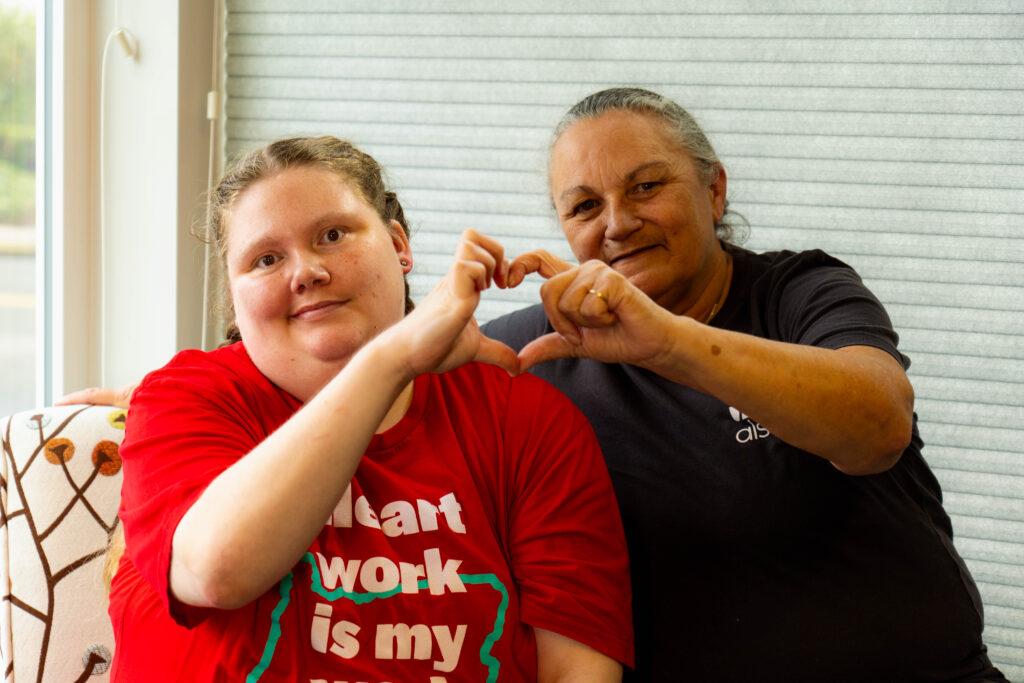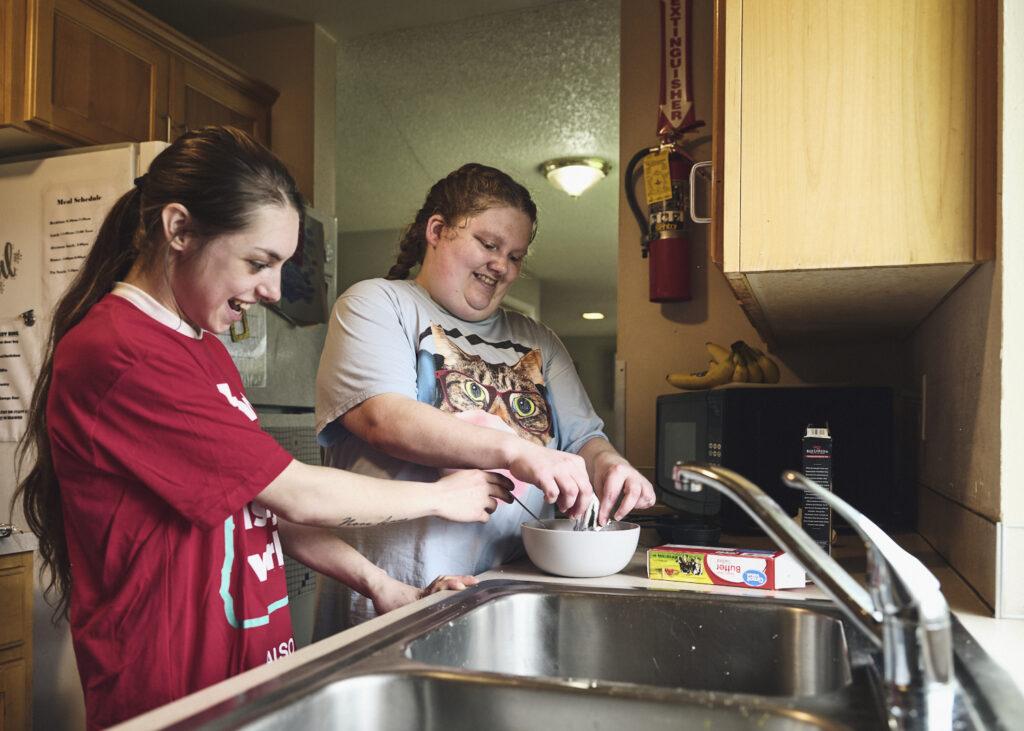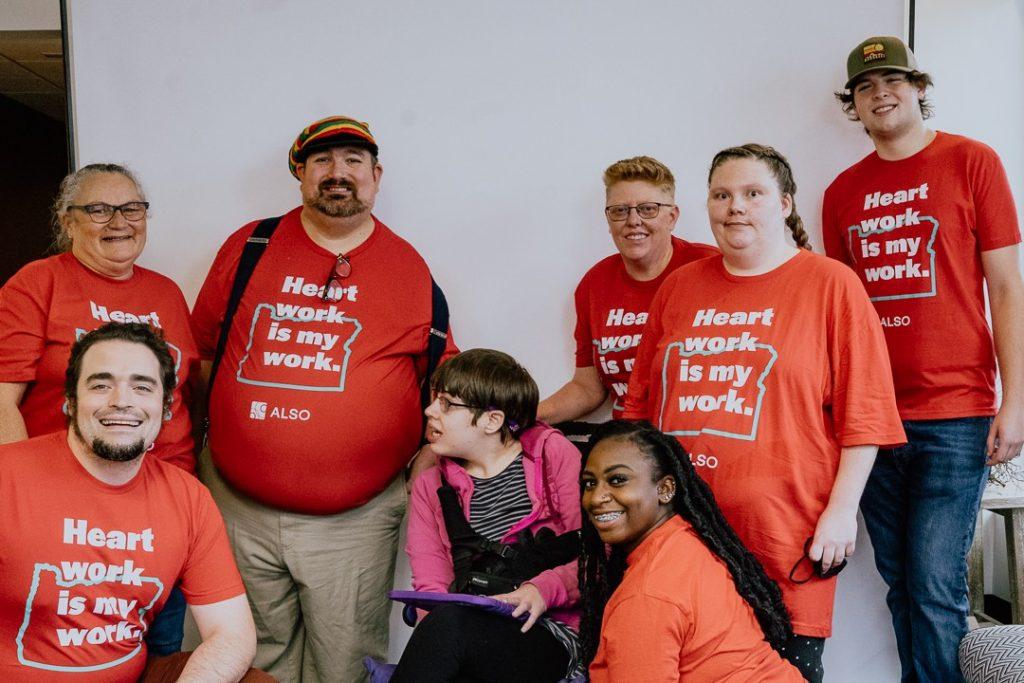Explore the ALSO Children’s Homes Wishlist and help fill the season with joy for the children supported by ALSO.
Explore the ALSO Children’s Homes Wishlist and help fill the season with joy for the children supported by ALSO.

It wouldn’t be surprising if you were a friend or family member of someone with a disability. About 1 in 6 children and teenagers are living with a developmental delay, disorder, or disability. [1] Furthermore, if you consider the 61 million American adults who have disabilities that impact major life activities, that’s a huge part of the population! [2]
The meaningful question we often ask ourselves is this: “If I have a friend, loved one, coworker, or family member with a disability, what’s the best way to be supportive?”
The team at ALSO is happy to provide expert advice on this topic. Check out these 6 best strategies on how to support someone with a disability.

Take time to learn about the condition(s) your friend or family member might have. Excellent online resources include:
If you’re a friend or coworker, a great resource would be family caregivers. They typically have great knowledge about how their loved one functions day-to-day, as well as any related disorders they might have (such as a mental health problem).
The wise advice of, ‘treat others the way you would like to be treated,’ is the perfect way to establish rapport. People with disabilities don’t want to be spoken to in a condescending manner, nor to be stared at. It’s always extremely important to respect their autonomy and ability to make decisions for themselves.
For the most part, individuals with disabilities view their mobility aids, such as wheelchairs, as extensions of themselves. Additionally, you might not know how to handle their equipment. Therefore, don’t touch a mobility aid or other adaptive equipment without asking first. [6]
In our desire to provide the best possible support, we sometimes forget that our loved ones are people first, with the right to make independent decisions regarding minor as well as major support. This includes issues like what someone would like for dinner—maybe they hate vegetables, just like you. Individuals with disabilities also have the right to make their own health care decisions. This right has been secured through the Americans with Disabilities Act. [7]
Caregiving responsibilities, although very rewarding, can also be extremely tiring. Particularly if you’re a close friend, or primary caregiver, it’s easy to get overly fatigued and overwhelmed. This can be detrimental to your mental and physical health, as well as those you are supporting. Research has found that unpaid caregivers report subjective cognitive decline (SCD), which is described as increased memory loss and confusion. [8]
The role of caregiving is extremely important, and you can’t do it if you are in poor health. The CDC advises[9] both unpaid and paid caregivers to make positive lifestyle choices, including:
It’s extremely helpful to celebrate appropriate achievements [10] and milestones, as long as you’re sincere, and the success is well-founded. Focus more on what the person can do, rather than their limitations. Be quick to offer emotional support and reasonable solutions when your friend is experiencing disappointments or makes mistakes.
No matter how competent someone is, it’s always okay to reach out for help. Letting others know that you need assistance, or some kind of supportive services is actually a strength. In Oregon, you can learn about several local resources from their Department of Human Services: [11]
For help in dealing with the stress and anxiety that may occur with providing support, consider the following;
Despite every effort, it might be more beneficial for your loved one to receive more extensive services. Examples are:
At ALSO, we recognize such decisions as a strength. It means you’re willing to find the best possible option for the success of your loved one. We are proud to be available to help with questions and concerns.

The ALSO Mission is to promote the full inclusion of people experiencing disabilities in the life of their community. To do this, we offer superior-quality support services to help your loved one thrive. We meet those with intellectual or developmental disabilities where they are and move forward from there.
Available services include:
Contact us anytime to get started!

Sign up for our newsletter to get our latest news, content, and job opportunities.
Help us ensure that everyone has the same opportunities in their home, workplace and community. Let’s make dreams!
